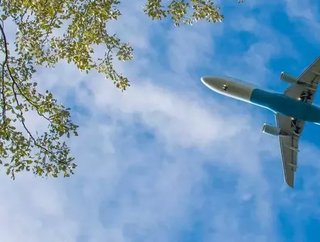Four priorities for Sustainable Aviation Fuels' development

The World Economic Forum has highlighted four priorities for the development of Sustainable Aviation Fuels (SAF) as governments and airlines are urged to step up efforts to create viable decarbonisation strategies to preserve operations and help avoid future climate crises.
Given limits on the future supply of feedstock for commercially available SAF pathways, it states "new technology pathways urgently need to be brought to market", despite their current lack of cost competitiveness.
Four priorities have been outlined as further direct and indirect support is required to ensure SAF production can scale up and meet demand increases.
- Support innovation to bring lignocellulosic / bio-waste and power-to-liquid pathways to market
- Support SAF provision through price floors guaranteed by government during the early stages of deployment
- Support early deployment by de-risking investment in the first wave of production facilities
- Announce in 2021 a SAF blending mandate for European aviation to be enforced by no later than 2025 with a blending level increasing progressively over time to 2050
Through the Forum's Clean Skies for Tomorrow initiative, supported by analysis from Energy Transitions Commission (ETC) and McKinsey & Company, the paper states Europe should pursue "a combination of supply- and demand-side measures to accelerate the uptake of sustainable aviation fuels".
Seven policy pillars for a more sustainable EU aviation ecosystem are also outlined in the report.
- Create a new long-term policy framework to support the production and consumption of SAF in Europe
- Support the development of radical new aircraft systems, including electric and hydrogen planes
- Complete the Single European Skies programme to ensure maximum efficiency of European air traffic
- Support fleet renewal for European airlines to improve energy efficiency
- Pursue existing carbon pricing policies and strengthen them after the sector recovers from the COVID-19 pandemic
- Support the implementation of Carbon Offsetting and Reduction Scheme for International Aviation (CORSIA)
- Continue to participate in international diplomatic efforts to reach net-zero emissions from global aviation by mid-century
With appropriate government support, the current situation could offer an opportunity for the industry to reset itself onto a more sustainable path, the report concludes.






